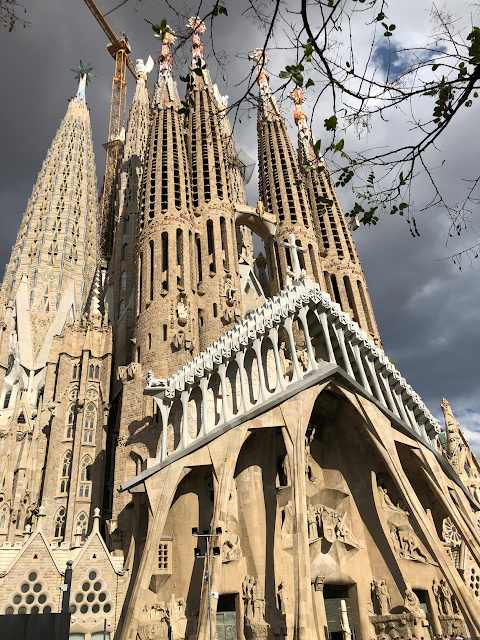One in three adults suffer from insomnia, and our dietary choices might be to blame!
Read below for advice from Alex Ruani, Chief Science Educator at The Health Sciences Academy, and Anna Mapson, Registered Nutritional Therapist from Goodness Me.
Key findings:
- Don't throw the pumpkin seeds out this Halloween, as they can spook away insomnia!
- Citrus fruits might make for tasty and healthy snacks, but they can disturb your sleep - and so can garlic!
- Certain supplements are better to avoid before bed!
The worst foods for your sleep
1. Sugar
Several studies have linked increases in sugar consumption to disturbed sleep patterns, more restlessness during sleep and shorter uninterrupted sleep. Consuming sugary foods like cookies and sweets late at night can disrupt our blood sugar levels, making it difficult to fall asleep.
2. Citrus fruit
Citrus fruits might make for tasty and healthy snacks, but they can disturb your sleep - and so can garlic! This is because they are likely to worsen reflux symptoms during sleep. This can disrupt your sleep, especially if you suffer from conditions such as gastroesophageal reflux.
Those with reflux problems should avoid fatty foods, tomatoes, citrus fruit, and allium vegetables like garlic and onion.
3. Too much water
Drinking plenty of water throughout the day is vital for a healthy lifestyle, but too much water just before bed can increase the risk of insomnia. By maintaining hydration levels throughout the day instead of just before bed, you can avoid multiple trips to the bathroom.
4. Alcohol
Alcohol might make us feel sleepy, but it's not going to allow for a deep restorative sleep. You may wake in the night, or wake up feeling sluggish in the morning. Increased alcohol consumption can also lead to hangover effects like headaches, digestive discomfort, tirednessand thirst. These effects can significantly affect daily functioning and even disrupt sleep quality the next night.
5. Caffeine from coffee and chocolate
It's widely known that caffeine is a sleep disruptor and even that midday coffee might interfere with your ability to sleep. Research has shown that consuming 400mg of caffeine six hours before bedtime can postpone sleep by as much as one hour. Apart from the well-known caffeine sources like coffee, tea, cola, and energy drinks, caffeine can also be present in certain foods. Dark chocolate, milk chocolate, cookies, and candies can contain significant levels of caffeine, potentially causing delays in falling asleep if consumed before bedtime.
The best foods to help you sleep
1. Carbohydrates, like pasta and rice
Carbs have a bad reputation, but they are vital to our diets and they can actually help us sleep better! This is because they increase the availability of tryptophan in the brain, an amino acid that produces melatonin.
Opting for complex carbs such as brown rice, wholegrains or starchy vegetables can avoid spiking your blood sugar.
2. B vitamins from protein, such as poultry and nuts
B vitamins play a crucial role in brain function and are involved in the production and use of melatonin and other sleep neurotransmitters. Even a slight deficiency in any of these B vitamins can lead to disrupted or lower-quality sleep.
Vitamin B12 is primarily found in animal-based foods such as oysters, fatty fish, poultry, eggs and dairy products. For vegans and vegetarians, it's important to focus on incorporating high-quality protein sources in each meal, including options like nuts and lentils.
3. Melatonin from plant foods, like peppers
While the body can produce its own melatonin, it's interesting to note that certain foods also possess melatonin and its natural sedative properties. Plant-based foods, in particular, are rich sources of melatonin, including vegetables (particularly peppers), mushrooms, legumes (beans and lentils), and select berries (such as sour cherries).
4. Seeds for magnesium production
Make sure you don't throw the pumpkin seeds out this Halloween, as they can spook away insomnia! This is because they contain magnesium, an essential mineral that not only acts as a muscle relaxant, but also enhances the secretion of melatonin, helping to promote sleep.
Other great sources of magnesium are shelled hemp hearts, sesame seeds, sunflower seeds, flaxseeds, almonds and dried thyme.
5. Zinc from cereal grains
While magnesium can help with sleep induction, zinc is said to help with the quality of sleep. Both human and animal studies have associated zinc intake with improved sleep quality. Good sources of zinc include oats, wheatgerm, sesame seeds, oysters, meat and eggs.
Can supplements affect your sleep?
Certain supplements are better taken in the morning or noon, in order to protect the quality and length of your sleep. This is because these supplements contain ingredients like sugar or caffeine, which could disrupt sleep. It's best to avoid the following supplements before bed:
- Vitamins B
- Multivitamins and energy herbs
- Vitamin D
- Calcium
- Vitamin C
Additionally, some vitamins, such as A, D, E, and K, are fat-soluble and are best absorbed when taken with meals. Take these vitamins with breakfast or lunch to avoid consuming larger meals in the evening, which is discouraged due to the possibility of indigestion.
Spoiler alert - pumpkins can scare away the late night insomnia blues!
This information is provided by Mattress Online. The company consulted with nutrition specialists to provide insights on foods that
can promote a restful night's sleep and those to steer clear of.
Sources mentioned:










